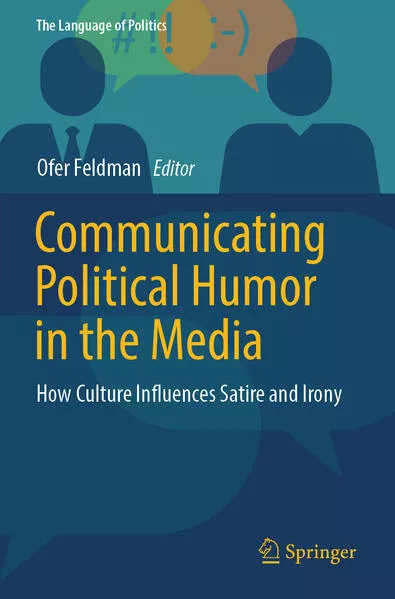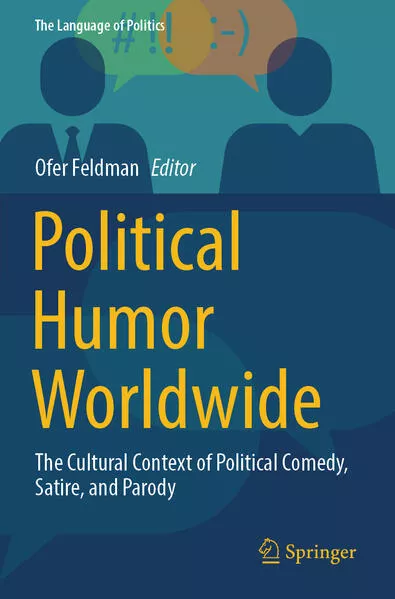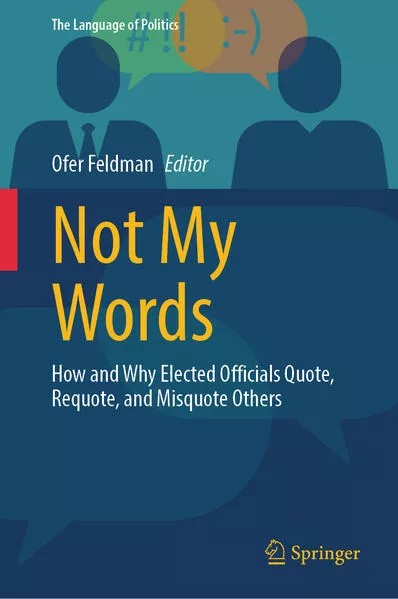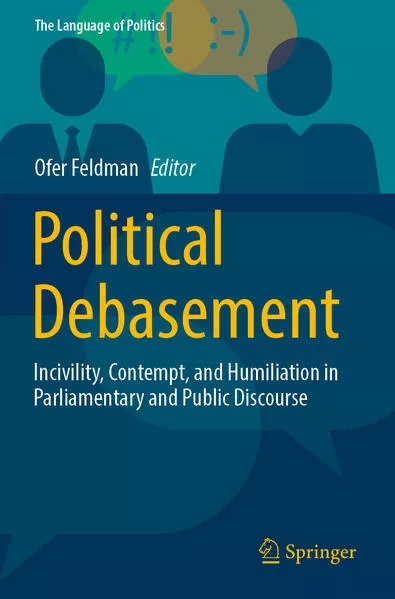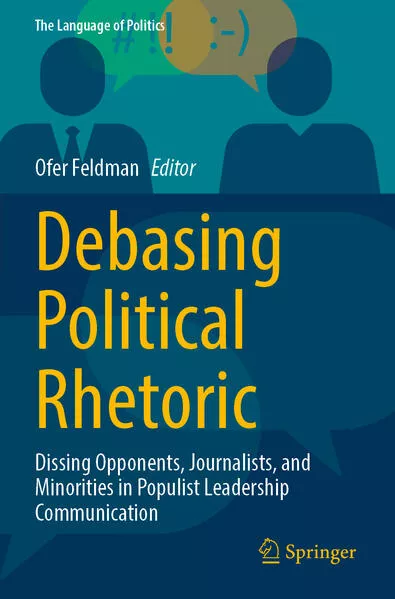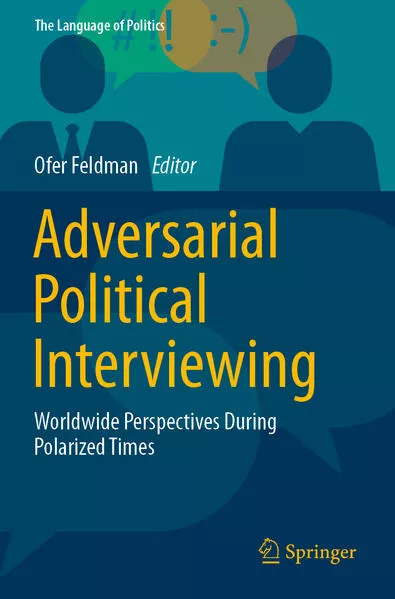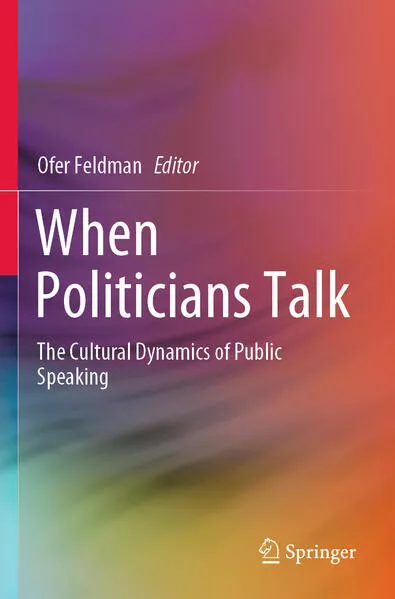
- Publikationen ca: 18
- Fragen & Antworten
Ofer Feldman
Ofer Feldman is a professor of Political Psychology and Behavior at the Faculty of Policy Studies, Doshisha University, Kyoto, Japan. He is the author of more than 90 journal articles and book chapters, and more than 100 encyclopedia items, in the fields of political psychology/behavior, communication studies, and Japanese politics, and the sole author, co-author, sole editor, and co-editor of 16 books and monographs, including Talking Politics in Japan Today (2004), Seiji shinrigaku [Political Psychology] (in Japanese, 2006), The Psychology of Political Communicators (2019, with Sonja Zmerli), and The Rhetoric of Political Leadership (2020).
Communicating Political Humor in the Media
This anthology of studies is a follow-up to Political Humor Worldwide: The Cultural Context of Political Comedy, Satire, and Parody. It further examines political humor as a distinct sub-discipline of political communication, influenced and shaped by a country’s culture.
Political Humor Worldwide
This collection of original chapters reflects the increasing interest over the past few decades in the relationship between political humor (as a distinct form of political discourse) and a country’s culture: Beliefs, values, norms, institutions, and processes that are affected, shaped by, and related to historical experiences, socialization processes, social structure, religion, the economic system, and majority/minority relations.
Not My Words
This edited collection of studies brings together a number of internationally distinguished scholars to provide a comprehensive and detailed examination of the usage and function of quotations and citations in political rhetoric in a variety of countries around the globe, including North and South America, Europe, the Middle East, and Asia.
Not My Words
This edited collection of studies brings together a number of internationally distinguished scholars to provide a comprehensive and detailed examination of the usage and function of quotations and citations in political rhetoric in a variety of countries around the globe, including North and South America, Europe, the Middle East, and Asia.
Communicating Political Humor in the Media
This anthology of studies is a follow-up to Political Humor Worldwide: The Cultural Context of Political Comedy, Satire, and Parody. It further examines political humor as a distinct sub-discipline of political communication, influenced and shaped by a country’s culture.
Communicating Political Humor in the Media
This anthology of studies is a follow-up to Political Humor Worldwide: The Cultural Context of Political Comedy, Satire, and Parody. It further examines political humor as a distinct sub-discipline of political communication, influenced and shaped by a country’s culture.
Political Debasement
This edited book is an innovative collection of studies—pioneering scholarship systematically exploring the various features of debasement language used by political leaders in their speeches, statements, and remarks during parliamentary and other official as well as unofficial, private activities.
Debasing Political Rhetoric
This book is a companion to Political Debasement: Incivility, Contempt, and Humiliation in Parliamentary and Public Discourse. It brings together interdisciplinary contributions to provide a comprehensive and detailed exploration of the nature, function, and effect of debasement language used by selected political leaders in Western and non-Western countries.
Political Humor Worldwide
This collection of original chapters reflects the increasing interest over the past few decades in the relationship between political humor (as a distinct form of political discourse) and a country’s culture: Beliefs, values, norms, institutions, and processes that are affected, shaped by, and related to historical experiences, socialization processes, social structure, religion, the economic system, and majority/minority relations.
Political Humor Worldwide
This collection of original chapters reflects the increasing interest over the past few decades in the relationship between political humor (as a distinct form of political discourse) and a country’s culture: Beliefs, values, norms, institutions, and processes that are affected, shaped by, and related to historical experiences, socialization processes, social structure, religion, the economic system, and majority/minority relations.
Adversarial Political Interviewing
This book presents a collection of studies on political interviews in a variety of broadcast media worldwide. Following the growing scholarly interest in media talk as a dominant form of political communication in contemporary society, a number of eminent international scholars analyze empirical material from the discourse of public figures and interviewer–journalists to address questions related to the characteristics, conduct, and potential effects of political interviews.
Debasing Political Rhetoric
This book is a companion to Political Debasement: Incivility, Contempt, and Humiliation in Parliamentary and Public Discourse. It brings together interdisciplinary contributions to provide a comprehensive and detailed exploration of the nature, function, and effect of debasement language used by selected political leaders in Western and non-Western countries.
Debasing Political Rhetoric
This book is a companion to Political Debasement: Incivility, Contempt, and Humiliation in Parliamentary and Public Discourse. It brings together interdisciplinary contributions to provide a comprehensive and detailed exploration of the nature, function, and effect of debasement language used by selected political leaders in Western and non-Western countries.
Political Debasement
This edited book is an innovative collection of studies—pioneering scholarship systematically exploring the various features of debasement language used by political leaders in their speeches, statements, and remarks during parliamentary and other official as well as unofficial, private activities.
Political Debasement
This edited book is an innovative collection of studies—pioneering scholarship systematically exploring the various features of debasement language used by political leaders in their speeches, statements, and remarks during parliamentary and other official as well as unofficial, private activities.
When Politicians Talk
This book details the relationship between culture and the language used by public figures, including politicians, political candidates, and government officials, in the broad context of political behavior and communication. Employing a variety of perspectives, theoretical, conceptual, methodological, and analytical approaches, chapters focus specifically on the question of HOW cultural factors (such as religion, history, economy, majority/minority relations, social structure, and values) shape the content, nature, and characteristics of the rhetoric that public figures utilize in selected countries in the Americas, Europe, Asia, Oceania, and the Middle East.
Adversarial Political Interviewing
This book presents a collection of studies on political interviews in a variety of broadcast media worldwide. Following the growing scholarly interest in media talk as a dominant form of political communication in contemporary society, a number of eminent international scholars analyze empirical material from the discourse of public figures and interviewer–journalists to address questions related to the characteristics, conduct, and potential effects of political interviews.
Adversarial Political Interviewing
This book presents a collection of studies on political interviews in a variety of broadcast media worldwide. Following the growing scholarly interest in media talk as a dominant form of political communication in contemporary society, a number of eminent international scholars analyze empirical material from the discourse of public figures and interviewer–journalists to address questions related to the characteristics, conduct, and potential effects of political interviews.
